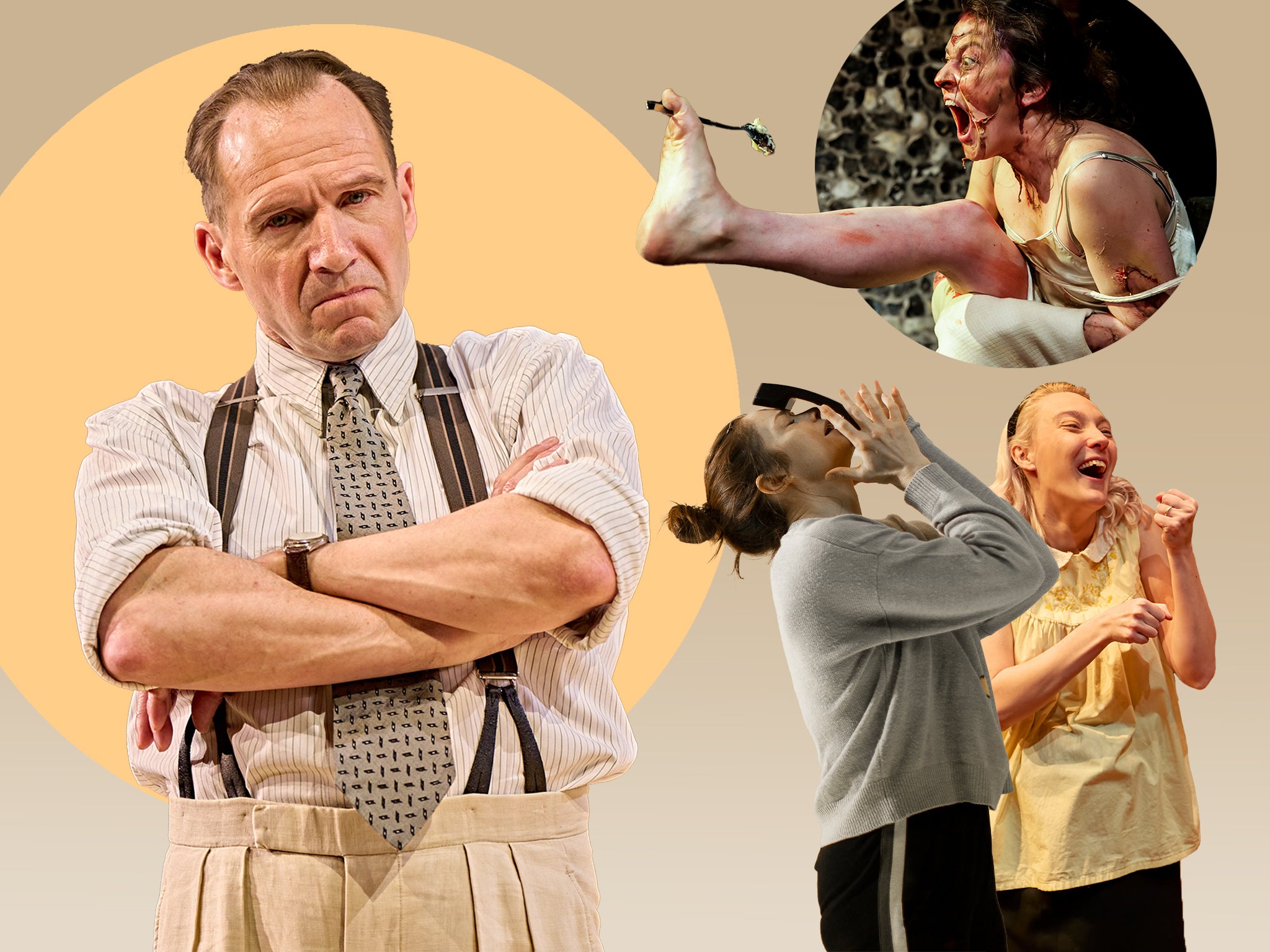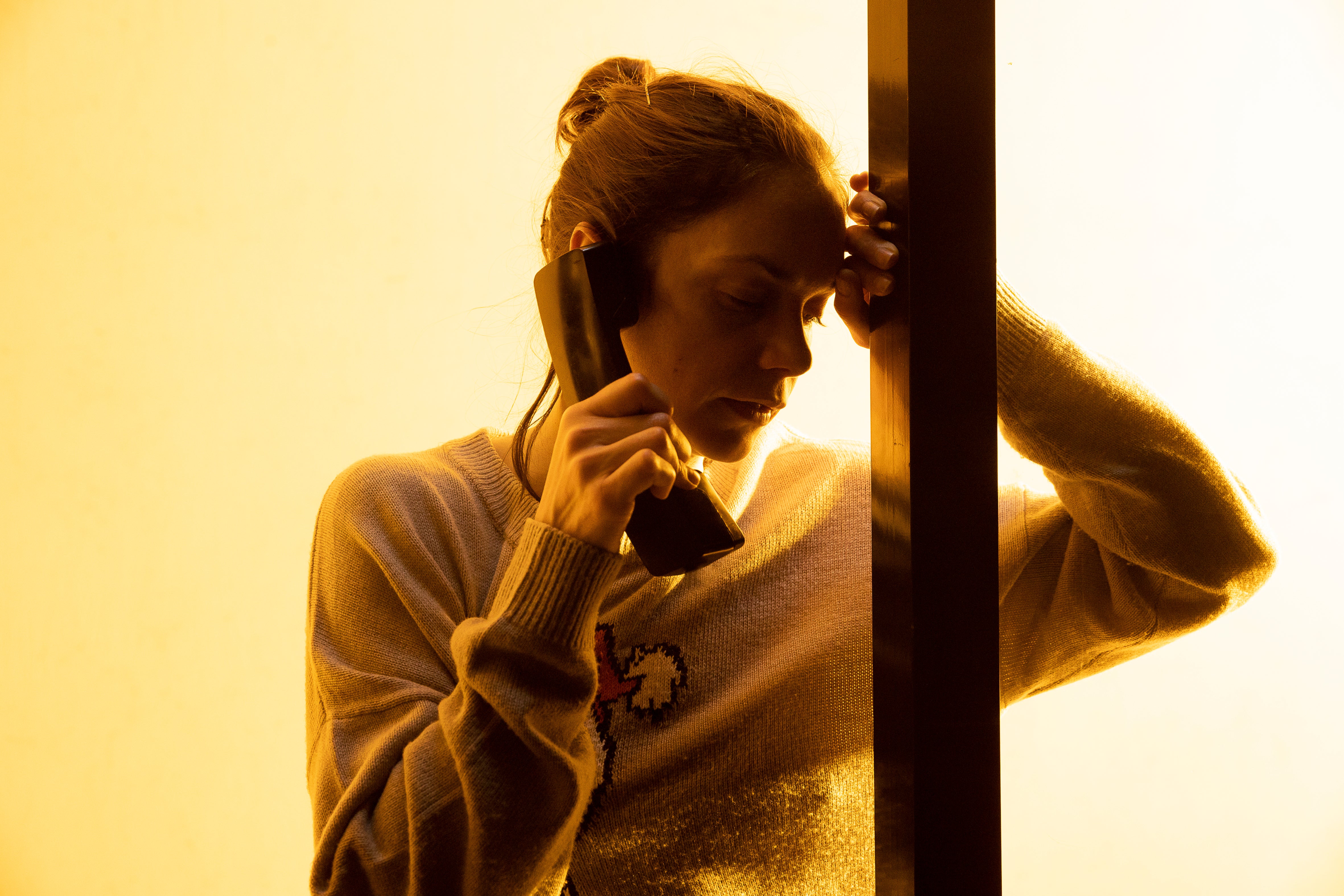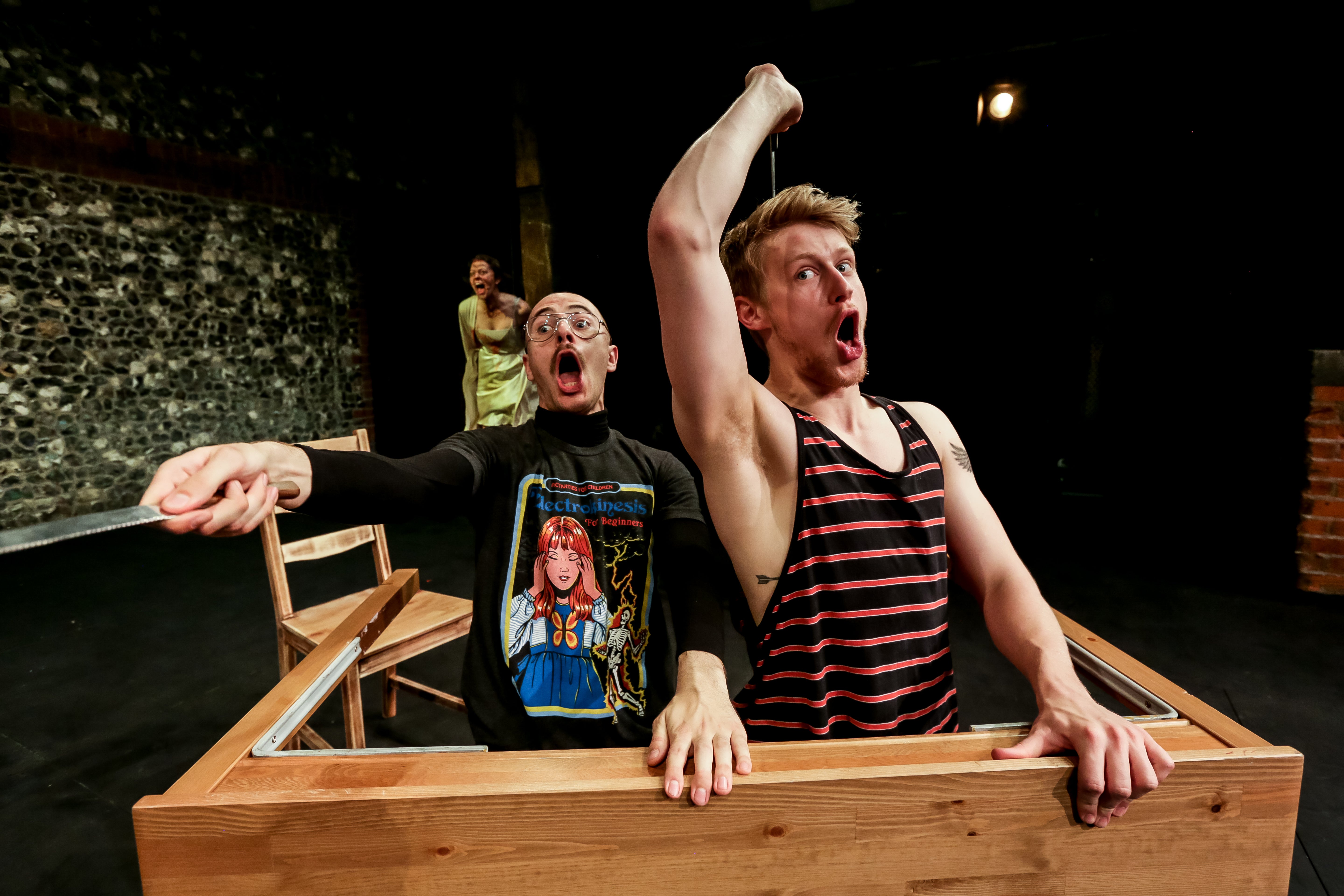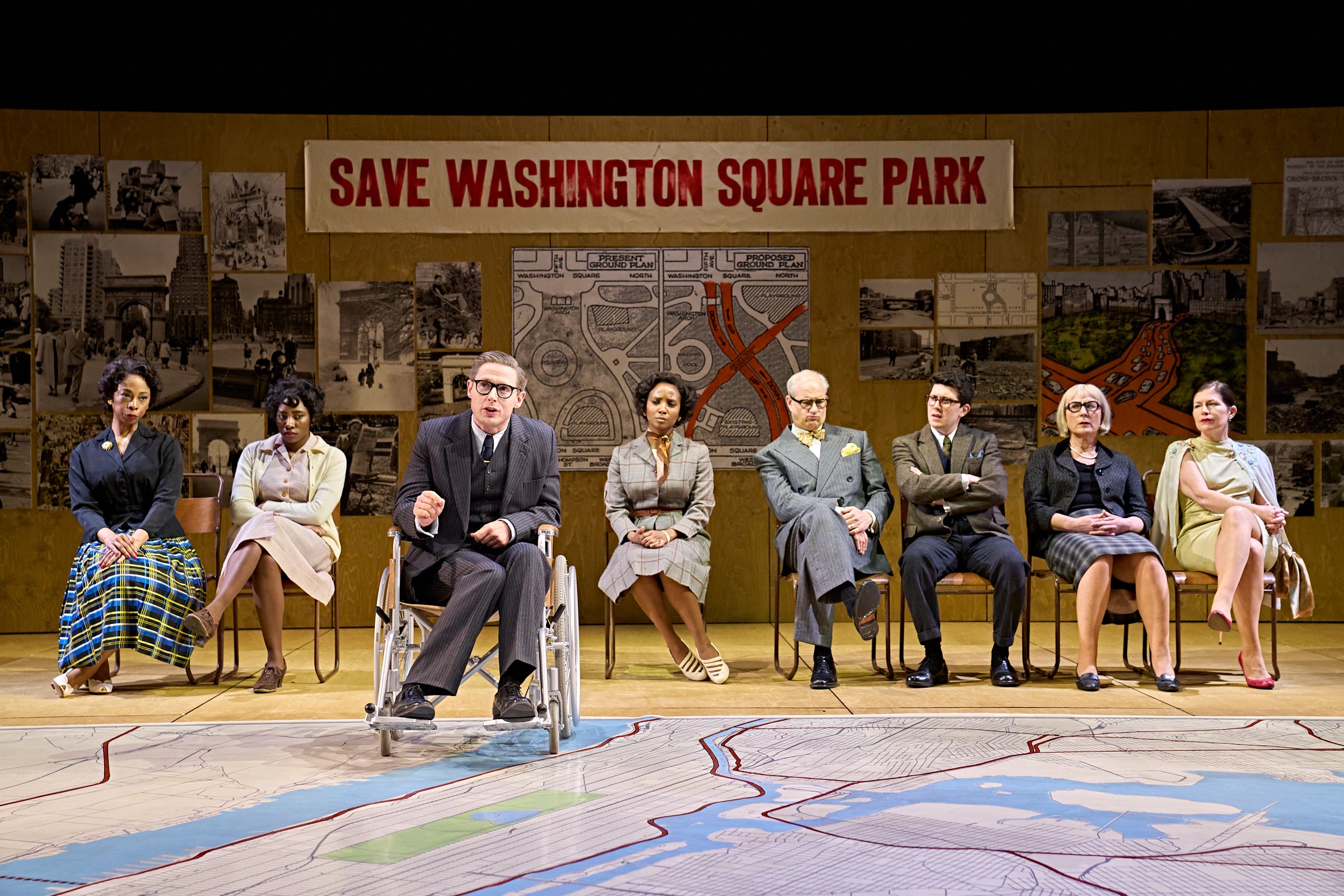The week on stage, from Ruth Wilson in The Human Voice to Clybourne Park
The highs and lows of the week’s theatre

This week’s theatre includes Ruth Wilson’s return to the stage, a zombie comedy, a gentrification drama and the reunion of David Hare and Ralph Fiennes. Check back next week for another cohort of productions.
The Human Voice – Harold Pinter Theatre ★★★☆☆
A revival of a 1930 Jean Cocteau monodrama, director Ivo van Hove’s stripped-back production is less a West End play than a relentlessly dolorous art installation, with Ruth Wilson using every weapon in her arsenal to keep it eventful. The Human Voice, also adapted by Pedro Almodóvar in 2020 into a half-hour short film starring Tilda Swinton, finds Wilson’s spurned lover in an empty modern apartment, on the phone to her ex, running a gamut of emotions: joy, insouciance, melancholy, anger, delirium, despair.

For the most part, Wilson, one of our greatest actors, does a brilliant job locating any nuance in such an overwrought script. But to see Wilson required to bark like a dog or theatrically clutch her lover’s shoes is to feel your heart sink. The glass box of a set, designed by Jan Versweyveld, is almost parodically pared back: rather than connecting with a subject we all know well – heartbreak – you’re left feeling oddly detached. A missed opportunity. Patrick Smith
Steve and Tobias Versus Death – Pleasance Theatre ★★☆☆☆
You might be right to expect a lot of screaming in a zombie apocalypse. But, in Paper Mug Theatre’s Steve and Tobias Versus Death, it is taken too far. This professed comedy has more shouts than laughs.
Set in their living room, as the world outside contorts into a fire-seething nightmare, brothers Steve and Tobias are still trying to go about their daily lives. They argue about mash potatoes and their troubled relationship – his brother’s cooking is missing the “vital ingredient of love”, Tobias says. But, even with the play’s short 55-minute running time, their cyclical conversation becomes tiring.

The subplot of an absent father is an attempt to add emotion to this largely untouching show. Daniel Kettle is grating as the pyjama-wearing younger brother, Tobias. While the supporting cast take turns to step into the obvious next victim role. Squeals retch out of them as they transform into the zombified versions of themselves – none of it is surprising.
Carefully choreographed fight sequences add a splash of thrill. But though the overhead flips are undeniably impressive, they are not enough to resurrect this lukewarm dystopia. Anya Ryan
Straight Line Crazy – Bridge Theatre ★★☆☆☆
Think of the men from US history who should have their stories told and chances are Robert Moses’s name doesn’t spring to mind. Despite never being elected, Moses was one of the biggest names in 1920s New York and the subject of David Hare’s latest collaboration with Ralph Fiennes and director Nicholas Hytner. It’s a story about the political power of roads – lots and lots of roads. Sadly, you’d probably have more fun rereading the Highway Code.
The fundamental problem with Straight Line Crazy is that while Moses is an interesting enough man, we’re talking about roads. It’s not the most fascinating of backdrops anyway, but Hare feels determined to make the topic even harder to engage with. In general, it’s a slog to get through.

As the second act opens on a board emblazoned with the words “Save Washington Square Park”, there’s hope that a new direction may liven things up. Fast-forward three decades and Moses’s plans have become a reality, to the detriment of the poor Black communities he’s forced out of the city. Its interesting subject matter, clearly meant to draw links to modern discussions about gentrification, but the play still feels flat even with new characters brought in.
Credit should be given to Samuel Bailey and Siobhán Cullen, who as Moses’s plucky young employees Ariel and Finnuala wring as much as they can out of the script and hold their own opposite Fiennes. As the play progresses, we see Moses the anti-hero replaced by a one-note, cartoonish villain. By the end, he’s mostly just storming around and bellowing. For a play with so many words, very little is actually said. Isobel Lewis
Read the full review here.
Clybourne Park – Park Theatre ★★★★★
Bruce Norris’s funny and scorchingly pertinent comedy was unveiled in this country in Dominic Cooke’s immaculate production at the Royal Court in 2010. Centred on the fall-out when a Black family move into a bigoted white neighbourhood in Chicago in the late 1950s, it was immediately recognised as a classic about the canker of racism and liberal complacencies in the United States.
So it says a great deal for Oliver Kaderbhai’s superb production at the Park Theatre that it manages to be even better and more penetrating than the show’s original. Kaderbhai enters the fray in a world where the killing of George Floyd in the States, and the racist ordeal recently suffered by “Child Q” at the hands of the police in the UK, suggests that this is no time for relaxation. But Clybourne Park is also conscious that it operates within a venerable tradition, which begins with Lorraine Hansberry’s A Raisin in the Sun. That play sees the present and the future in the light of the past and various manifestations of slavery. It invites other playwrights to have a dialogue with it.
Bruce Norris ups the ante. Set in 1959, the first act of Clybourne Park is a kind of “prequel” to A Raisin in the Sun. It imagines the tragic conditions that caused Russ and Bevel (played with matchless insight by Richard Lintern and Imogen Stubbs) to sell their desirable two-bedroom property for a knockdown price, thus enabling the first Black family to move into the neighbourhood. I had not appreciated until now the poetic shaping of Norris’s script. Phrases such as “But you can’t live in a principle can you? Gotta live in a house” hop about from person to person like malign performing memes. Commentators cannier than I would resist using the word “definitive”, but on this occasion, I am going to stick my neck out and declare that Kaderbhai delivers a definitive version of Clybourne Park, a wiser and more inexhaustible piece than we had previously reckoned. Paul Taylor






Join our commenting forum
Join thought-provoking conversations, follow other Independent readers and see their replies
0Comments